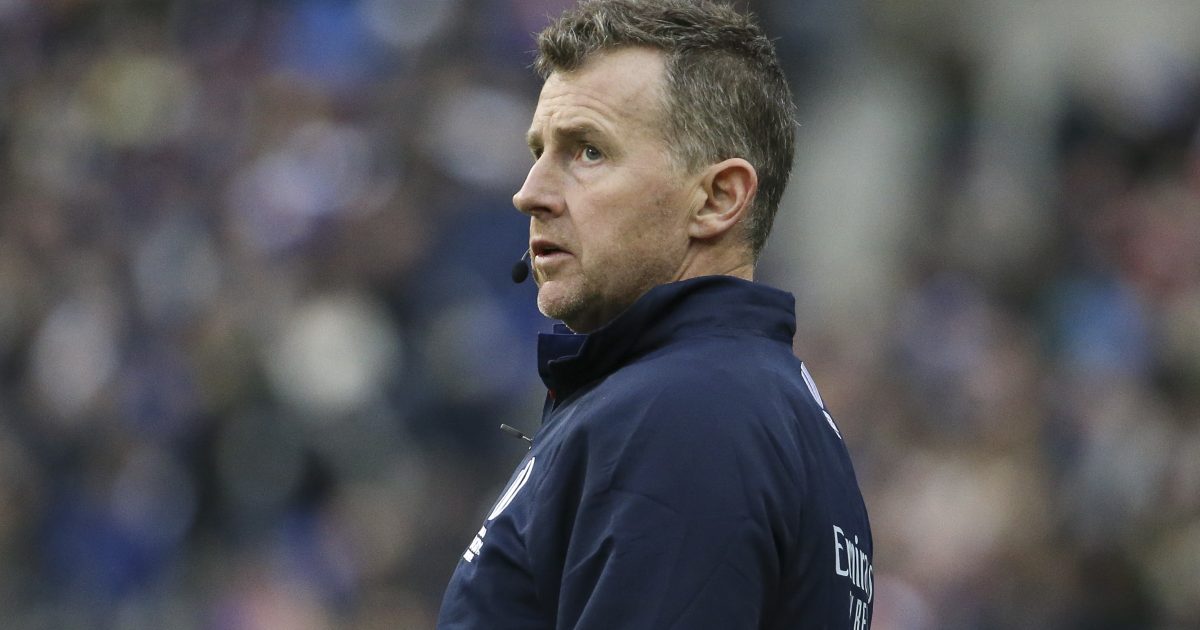Insolite – Nigel Owens sacré Champion de l'agriculture de l'année

Voilà un trophée que l’ancien arbitre international de rugby Nigel Owens n’avait encore jamais reçu.
Lui qui avait été sacré Arbitre de l’Année 2015 aux World Rugby Awards quelques jours après avoir arbitré la finale de la Coupe du Monde de Rugby entre la Nouvelle-Zélande et l’Australie, lui qui, pendant 17 ans, a officié sur 210 matchs au total à travers le monde dont 100 en tant qu’arbitre de champ, lui qui a pris sa retraite du rugby international fin 2020, vient de se voir décerner une récompense prestigieuse.
Am truly honoured. But it is on behalf of all you truly remarkable hard working farmers out there who keep the nation fed that I accept this with humble gratitude. Thank you all for your kind words. Diolch o galon. @FarmersWeekly @NFUCymru @NFUtweets https://t.co/xMsXBMjGP3 pic.twitter.com/zGqeFkqURy
— Nigel Owens MBE (@Nigelrefowens) October 4, 2024
Le jeudi 3 octobre, Nigel Owens a reçu l’honorable prix de Farming Champion of the Year lors d’une cérémonie qui s’est tenue à l’hôtel Grosvenor House de Londres.
Ce prix, remis par le Syndicat national des agriculteurs d’Angleterre et du Pays de Galles (NFU), le distingue comme « Champion de l’agriculture de l’année ».
Reconverti en éleveur de bétail
Owens, qui s’est reconverti en éleveur de bétail dans sa ferme de Mynyddcerrig, dans le Carmarthenshire, a été récompensé pour son « dévouement exceptionnel à l’agriculture britannique et galloise » ainsi que pour son engagement envers des enjeux cruciaux tels que la tuberculose bovine et la santé mentale dans les milieux ruraux, a précisé la NFU dans un communiqué.
« Nigel Owens mérite pleinement ce titre de Farming Champion of the Year, » a affirmé Tom Bradshaw, président de la NFU. « Son engagement inlassable envers les agriculteurs britanniques est le reflet des valeurs de résilience, de dévouement et de travail acharné qui caractérisent notre secteur. »
Son combat pour la santé mentale
Owens s’est illustré en sensibilisant sur des thèmes essentiels comme la sécurité alimentaire et la lutte contre la tuberculose, tout en étant une voix forte en faveur de la santé mentale dans la communauté agricole, encourageant l’expression et le soutien mutuel parmi les agriculteurs.
« Son histoire trouve un écho auprès de nombreux membres de la communauté agricole, et nous sommes extrêmement fiers qu’il reçoive cette reconnaissance bien méritée », a rappelé Tom Bradshaw en référence à un évènement tragique de la vie de Nigel Owens, sa tentative de suicide à l’âge de 26 ans.
Jeremy Clarkson, précédent lauréat
Ému et honoré de recevoir cette distinction, Nigel Owens a exprimé sa gratitude en soulignant que « l’agriculture a toujours été l’un de [ses] rêves. Bien que le rugby ait été un élément central de [sa] vie pendant de nombreuses années, [il avait] toujours l’intention de revenir à la terre. »
Selon lui, ce prix « représente également tous les agriculteurs qui travaillent sans relâche chaque jour pour assurer la vitalité des communautés rurales et la continuité de la production alimentaire. »
La NFU n’est pas contre un peu de publicité. En 2021, la personnalité qui avait reçu cette même distinction, n’était autre que le journaliste et animateur de télévision britannique Jeremy Clarkson, aussi à l’aise à la présentation de Top Gear que du documentaire de télé réalité Clarkson à la ferme sur Amazon Prime Video.


